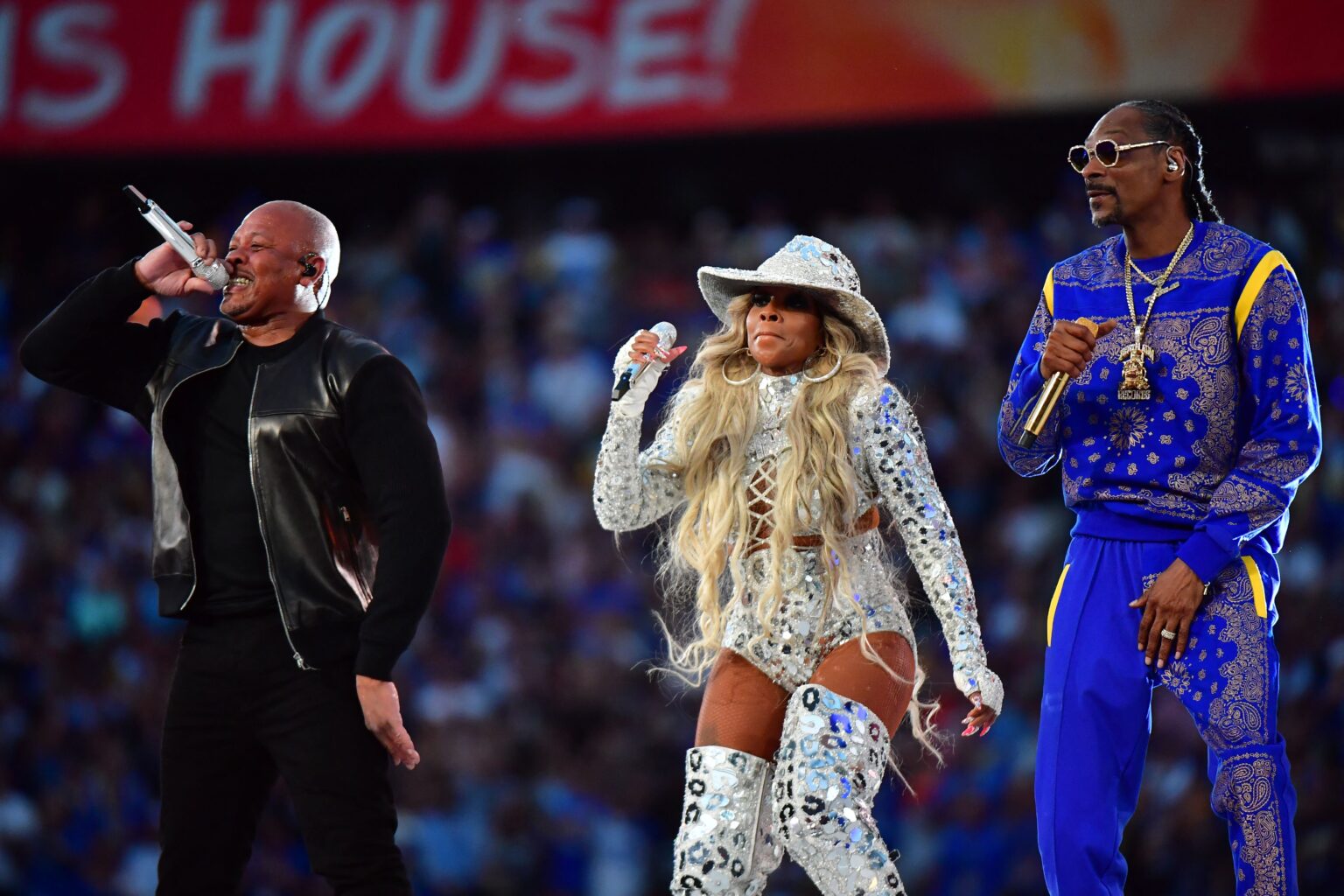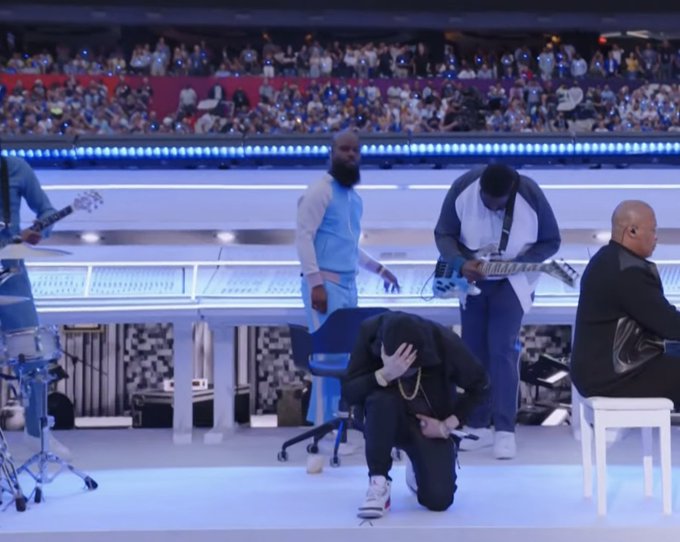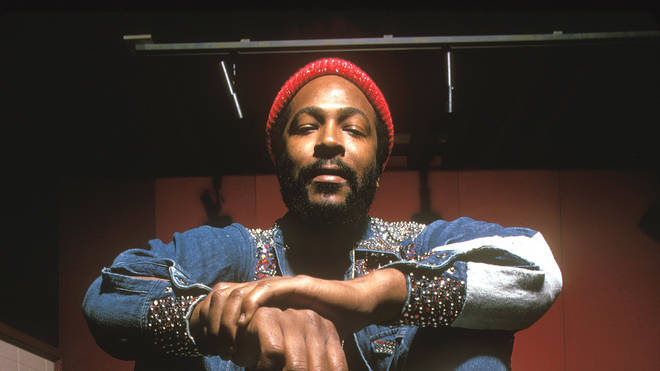The HBO docuseries The Defiant Ones, currently out on Digital HD and out on Blu-Ray next week, chronicles the life and careers of friends and business partners Dr. Dre and Jimmy Iovine, and is one of the most cutting-edge documentaries of its type ever produced.
On one hand, you have the life of Iovine; the son of an Italian longshoremen who grew up in Brooklyn. On the other end of the spectrum we find Dr. Dre; who grew up in Compton, California with a single mother who did the best she could. Their abilities to see past the respective difference between the two and get down to work being creatively innovative is remarkable. However, equally fascinating is the duo’s many subtle but profound parallels in their respective fields of Rock and Roll and Hip-Hop.
Recently, I had the pleasure of speaking with Defiant Ones director Allen Hughes. A master of his craft, Hughes had previously been best known for working with his brother Albert on films like Dead Presidents, Menace II Society and The Book of Eli.
Allen stepped away from working with his sibling on this project. However, one can readily discern his own unique cinematic voice, relative to prior works done with his brother, almost immediately. From a nonlinear story flow to maintaining a fast pace and expertly melding the similar with the dissimilar, I asked the filmmaker how it all went down.
THE DEFIANT ONES Official Trailer (HD) HBO/Dr. Dre Docuseries
THE DEFIANT ONES Official Trailer (HD) HBO/Dr. Dre Docu-Series SUBSCRIBE for more TV Trailers HERE: https://goo.gl/TL21HZ When two unexpected music moguls come together, history is made. The Defiant Ones, a four part documentary series about Jimmy Iovine and Dr. Dre, premieres July 9 at 9PM on HBO.
The game plan going in was just to gather the greatest stories and be motivated by those stories, said Hughes. Getting a 360 view instead of one single narrative of it. I kind of wanted to pull down the veil, get all these legendary people taking so I could get the cameras rolling. If we were talking about one story, I just wanted to get as many perspectives as possible.
Whether they were legendary or people behind the scenes and just be motivated by what I have gathered and be inspired that way. I knew, once I started collecting things together, of what people were starting to say, and I would show people. I would show Tom Petty something before I shot with Tom Petty, I would show DOC something before I would shoot DOC. Just the nature of where I was going, how I was pushing the medium, and where the narrative was going. It was motivating them to push harder and higher.
The Shadow League: You used the silent pause technique quite extensively, and to great effect, throughout the film but it never gets old. How did you make it so it never came off as clich?
Allen Hughes: I saw a narrative in a documentary that I saw that wasnt anything like the one in Defiant Ones, but it was just enough of a pause in a silent moment where I was like Oh, thats the technique I could use that will open this up and also get the viewer interested to where it isnt just a talking heads documentary and more of a scene, you know?
Me and my editors are artists as well. So, youre not going to repeat yourself. So, it didnt get old because each time we would do it in a different way and we only did it when it was natural. It naturally came out of the edit. We wouldnt do that on purpose. We didnt force it, so it just came naturally. Its sprinkled throughout the movie, four-parts and ten and a half hours, ten times. Thats not a lot considering we had that much time.
Dr. Dre mixing Marvin Gayes “I Want You” Vocals | The Defiant Ones
Clip taken from HBO’s The Defiant Ones
TSL: Why the nonlinear approach? That was risky. Though it was a phenomenal approach, failure to properly execute it would have catastrophic. But it was well done.
AH: I think going nonlinear was something to keep it exciting and urgent. Again, doing a traditional documentary really wasnt going to cut it. We needed to overachieve in the narrative. I love documentaries. I would rather watch a documentary than a feature film. But, most people look at documentaries as if they have to eat their vegetables, and I didnt want that. I wanted it to be like a great Italian meal that was festive, and they looked forward to partaking in.
The whole approach was, how do we keep people interested, how do we keep them on the edge of their seats, how do we keep them laughing, how do we keep them oohing and aahing, but not forcing it. Just finding it naturally.
TSL: Dr. Dre is an artist above most things. He obviously loves doing what he does, but the dichotomy is that he seems uncomfortable discussing it at times. Youve worked with him before decades ago, where was he in his life when The Defiant Ones was shot?
AH: What was noticeably different at this time was he came into a place where, as he said in the beginning, he was ready to let these things go, ready to talk about these things, and ready to share in ways that he was comfortable with. I dont think he was ever comfortable with this stuff. He was never really comfortable, as he said in the film, being out front. I think he finally was comfortable because he was convinced by friends, family, myself and others that his story was important. He had to be convinced.
How Dr. Dre started off his music career | The Defiant Ones
Uploaded by Dr. Dre on 2017-07-27.
TSL: The physical assault by Dr. Dre on journalist Dee Barnes had indeed been a black mark on his legacy for years. Barnes is prominently featured in almost every episode. What was it like touching on this sensitive subject matter?
AH: It was a difficult thing trying to deal with something that hadnt been dealt with before, especially something as serious as this. But I was a fan of Dee Barnes from the Pump It Up, Body and Soul days. I remember how playfully rambunctious and smart she was back in the days. I just didnt know if she was going to be the same Dee Barnes or not.
We had lunch and she was a more mature, energetic version of the woman I knew as a teenager. She was down, man. The only part was getting to know me, and what my agenda was. She expressed that she was a fan of some of the films and, at the end of the day, trusted my vision.
I said Hey, Im not here to edit you or whatever. We just wanted to get the full thing. Before this thing jumped off, she was a vital part of culture. We wanted to start it like that. We didnt want to start it at this incident because thats not the sum of all her influence, and she was with it. She was completely down, and Dre was down from the beginning. They were down to do whatever it took to make it honest. That made it much simpler for me.
TSL: The docuseries is filled with apparent surface dissimilarities among themes, and people, being melded together to form a great all-around tapestry. The race, age and places of birth of Dr. Dre and Jimmy Iovine are clear examples of that, but it occurred throughout the film in other instances.
AH: I saw the sameness as much as possible. Its a discovery process. I knew that things would come out in the investigating and the viewing that, even though Ive known both men for over 25 years independent of one another, there were going to be things that came out that I was unaware of. Thats part of the magic. But the thing that I was aware of going in that they had in common was their ambitions similarly manifest themselves in one way. Its that theyre always looking forward.
Theyre never harping on, or sentimental about, something that happened. They rarely ever talk about a hit that they had, theyre just always talking about the next thing. There were things about them that were similar, and I was rocking with that until I found things in the journey that obviously made them so much different. Their focus whenever something massive happens is to look at the next thing. That was something that was fascinating to me. They dont let noise in. They dont let a bunch of drama into their lives.
The Story of N.W.A. and Ruthless Records | The Defiant Ones
Uploaded by Dr. Dre on 2017-07-27.
TSL: Obviously and purposefully thematic, but very ambitious. As was the case with the nonlinear format, juxtaposing apparent opposites to better highlight their similarities could have gone horrible wrong by coming off cliched.
AH: Even though Im a child of Hip-Hop, I came up loving rock. I came up loving R&B. I loved them all equally. Even though I didnt have a typical black experience and Im half Armenian, I was always able to see the similarities in things, and the differences. My main thing with music was like theyre all saying the same thing, just with a different language, when you look at it.
There would be Stevie Nix in one scene, and Eazy E in another. People would be like What does this have to do with that? I vowed in making this film and forging the narrative, that it was all the same noise, it was always the same clash, it was always the same sonic qualities. Hip-Hop is rock, or punk rock in the case of Tupac and Marilyn Manson. You look at the Beautiful People sequence and, what I was trying to say was, Look, this crazy white boy, and this crazy brother Tupac, theyre just as artistically insane and in your face.’ They were more similar than dissimilar and that was the approach. As corny as it sounds, I was in the edit like, Lets throw a gangster party that everybody is invited to. I want everybody to feel that way.
Dr. Dre rocking out to Nirvana | The Defiant Ones
Uploaded by Dr. Dre on 2017-07-27.
TSL: Did Dre or Jimmy ever discuss their parallels with you?
AH: I dont think theyre aware of the parallels that much. I remember Dre saying to me, and Jimmy said later, it was great doing this film because they got to learn a lot about their business partner that they didnt know. Thats how forward thinking they are. They dont sit there and tell a lot of stories. They both have an affection for one another that is great that you dont usually see in partners that have been working together that long. But they were discovering things about each other throughout the process. It was interesting to see. Even when they were in the trenches dealing with censorship and freedom of speech in the ’90s, and all that stuff that was happening at Death Row, they didnt tell many war stories to each other.
Dre lives in the moment, too. Dres a dreamer. I didnt know that Dre was such a dreamer. Again, theres a lot of whimsical behavior, which is truly artistic. He only does what he feels. I always have insomnia, and its a concept that blows his mind. Hes like Insomnia? I go to sleep when Im tired and I wake up when I feel like waking up. Dont we wish we were Dr. Dre?



